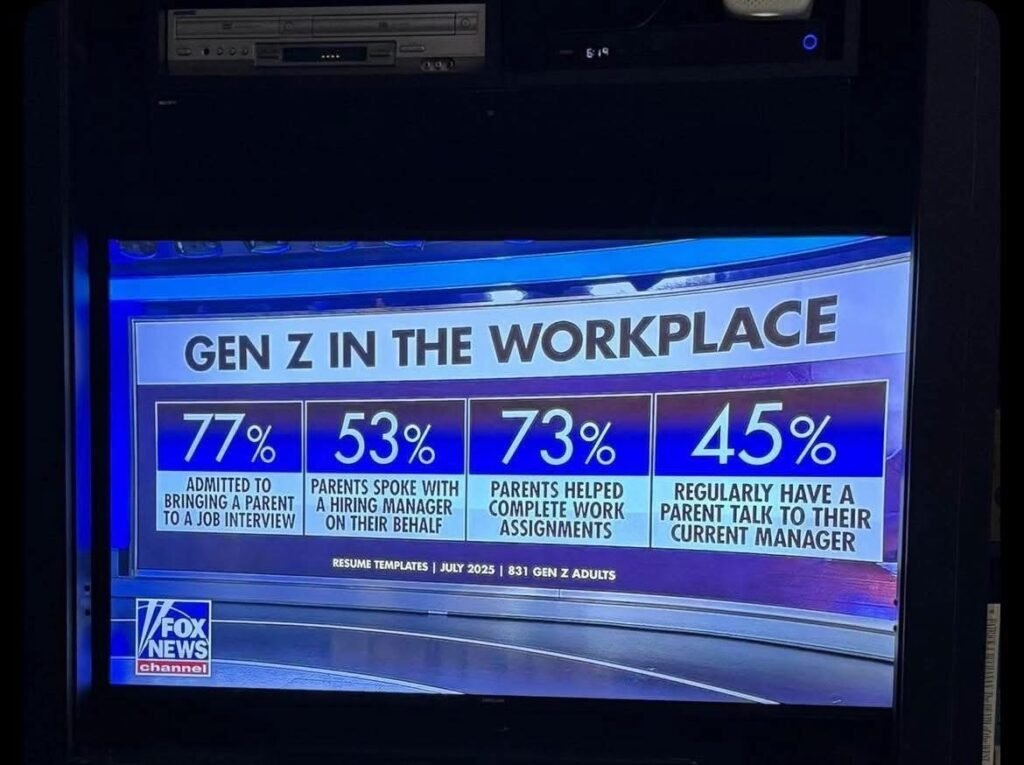Business
77% of Gen Z Workers Admit to Bringing a Parent to Job Interviews

A new survey is raising eyebrows after revealing that 77% of Gen Z workers admitted to bringing a parent along to a job interview. The surprising statistic highlights a growing trend of parental involvement in the workplace that has left many hiring managers puzzled—and sometimes frustrated.
The survey, conducted among 831 Gen Z adults, sheds light on a generational shift in how younger workers approach their careers. While previous generations often took pride in independence during the job-hunting process, today’s young professionals seem to rely more heavily on family support.
Experts suggest a few reasons behind the trend:
- Helicopter Parenting: Many Gen Z workers were raised by parents who were highly involved in their schooling, extracurriculars, and early career planning.
- High-Stakes Job Market: With competition for jobs at an all-time high, some young adults feel more comfortable with a parent by their side as a source of reassurance.
- Confidence Gap: Entering the workforce after years of remote schooling and disrupted early job experience due to the pandemic has left some applicants less certain about interviews.
While some employers may perceive parental involvement as unprofessional, others argue it highlights strong family bonds and support systems. However, bringing a parent into the interview room inevitably raises concerns about independence, maturity, and decision-making capabilities.
This statistic is just one piece of a larger picture: the same survey found that 53% of Gen Z had parents speak with hiring managers on their behalf, 73% said parents helped complete work assignments, and 45% reported parents regularly talking to their current manager.
As Gen Z continues to make up more of the workforce, companies may need to adapt to new dynamics—or risk alienating the youngest generation of employees. The big question for employers now is: how much parental involvement is too much?
Would you like me to frame this article more critically (focusing on concerns from employers) or more sympathetically (emphasizing Gen Z pressures and family support)